Tasting package 4x200g choose your own
25,41 €
Make a selection of the flavoured coffees you want to try.
Ingredients: medium roasted coffee beans, flavourings.
The product is allergen-free and suitable for vegans.
The hermetically sealed packaging with a valve ensures that the coffee stays fresh for longer. The best coffee comes from freshly roasted coffee beans.
Best before: 1 year.
*Packaging may vary from the picture.
Grinding advice
Do not grind more beans at one time than it takes to make coffee immediately. Ground coffee allows air to escape to the oils that give the aroma. As they evaporate, so does the coffee aroma. As a result, the coffee starts to lose its flavour almost immediately after grinding. Different coffee-making methods require different grinding. Coffee that is brewed by steeping must be ground to a granulated sugar-like consistency. The entire steeping process should take between four and six minutes. If the coffee has percolated faster than four minutes, the beans should be ground a little finer. If the drainage takes longer than six minutes, the grind should be left a little grainier. Espresso requires a particularly fine grind; the coffee should be almost like a powder and gently sieved. The secret of a good espresso grind is the time it takes to mature. About 30g of espresso should be ready in about 25 to 30 seconds. As with drip coffee, the beans must be ground finer if the espresso is to be ready in less than 25 seconds. If it takes longer than 30 seconds to brew, the beans should be left coarser when grinding.
Advice on storage
It is not advisable to store coffee in the fridge, as it will pick up the aroma and flavour of other foods in the fridge. If the coffee beans are packed in a refillable container specially designed for storage, with a one-way valve to vent accumulated gas and avoid contact with oxygen, this container can be used successfully at home without the need to decant the coffee. However, if the coffee beans are without reclosable packaging, the packaging should be sealed with a staple and stored in a dry and cool place, away from the sun and strong aromas. This packaging can be placed in an airtight container, or the beans can be decanted into an opaque container. In summary, coffee should be stored in a clean, dry, airtight container in a cool, dark place.
Advice on using a press pot
When using a press pot to make coffee, the beans should be left coarse when grinding. If the coffee grounds are too fine, the bitter and astringent flavours will come out too quickly. The brew should be allowed to cool to around 94-95 degrees before pouring into the pot, at which point it will not spoil the flavour by scorching the grounds. In one mug of about 300 ml, 7-8 g of coffee grounds could be added. Keeping the coffee grounds in the water for a longer period of time will make the coffee more bitter and astringent and the higher the caffeine content of the drink. Depending on the desired flavour strength, the ‘infusion’ time of the coffee could be 3-5 minutes.
The press pot can also be used successfully for making coffee drinks with milk. The desired amount of milk should be heated until it is hot enough that you can’t stick your finger in. Make sure that the milk does not boil. Next, pour the milk into a clean and empty squeezing jug and move the squeezing jug up and down for a few minutes. This will produce a froth of milk that can be used to make cappuccino and latte coffee.
Tips for making moka coffee
Use a filter specifically designed for your coffee filter basket. Bleached white paper filters are the most common, but brown paper filters are also available. Washable, environmentally friendly wire mesh filters are also suitable.
Making espresso
If you’re planning to buy a coffee machine for your home, opt for one with a pump that pumps water through the coffee. Avoid steam-driven machines. A decent machine with a pump will cost from several hundred to several thousand euros, but if you want to enjoy a delicious espresso, it’s well worth the investment. For the coffee lover on a budget, we recommend a moka pot.
| Weight | 0,850 kg |
|---|---|
| Grind | Coffee beans, Ground |
Be the first to review “Tasting package 4x200g choose your own” Cancel reply
You must be logged in to post a review.
Related products
All coffee beans
All coffee beans
All coffee beans
All coffee beans
All coffee beans
All coffee beans
All coffee beans
All coffee beans


 Eesti
Eesti Suomi
Suomi Latviešu valoda
Latviešu valoda Lietuviškai
Lietuviškai Русский
Русский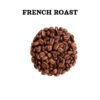
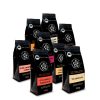
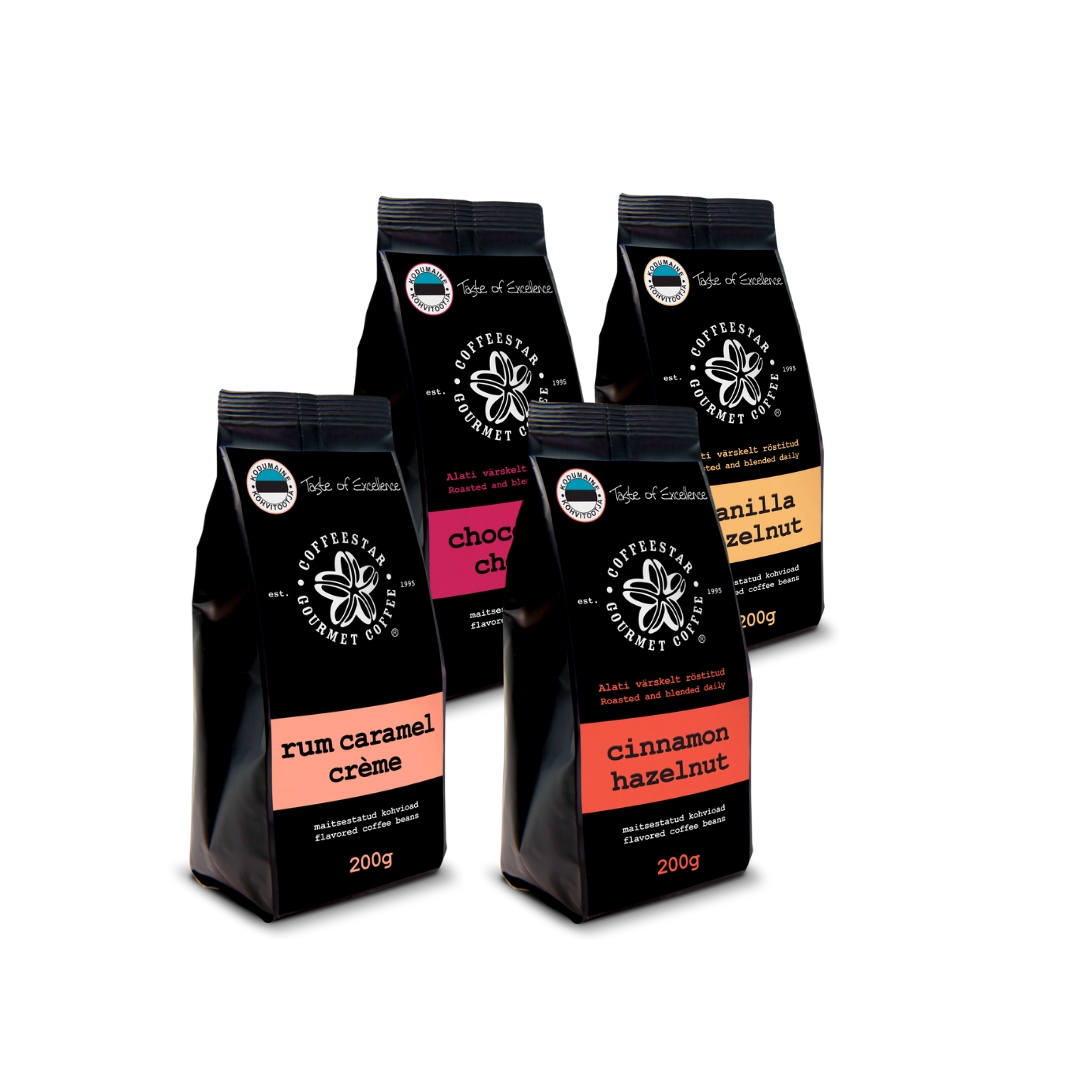
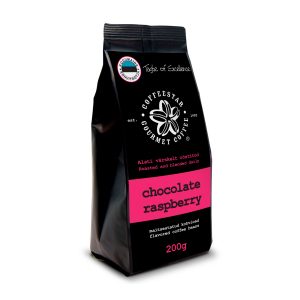
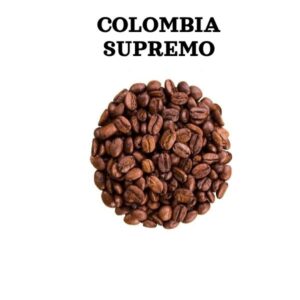
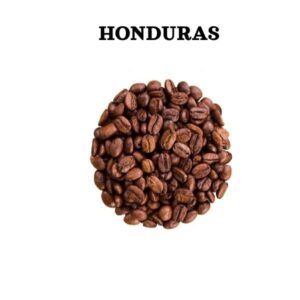
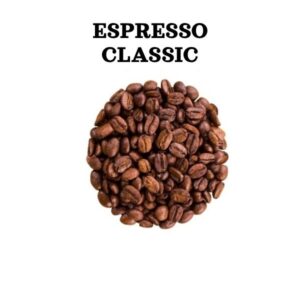
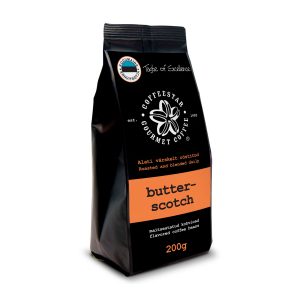
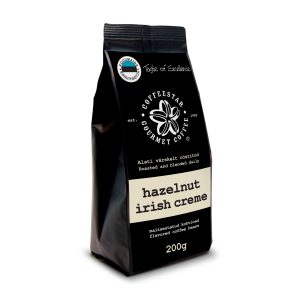
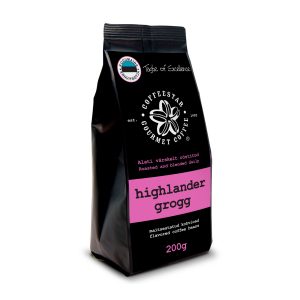
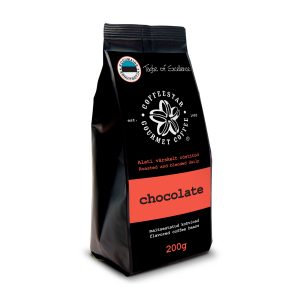
Reviews
There are no reviews yet.